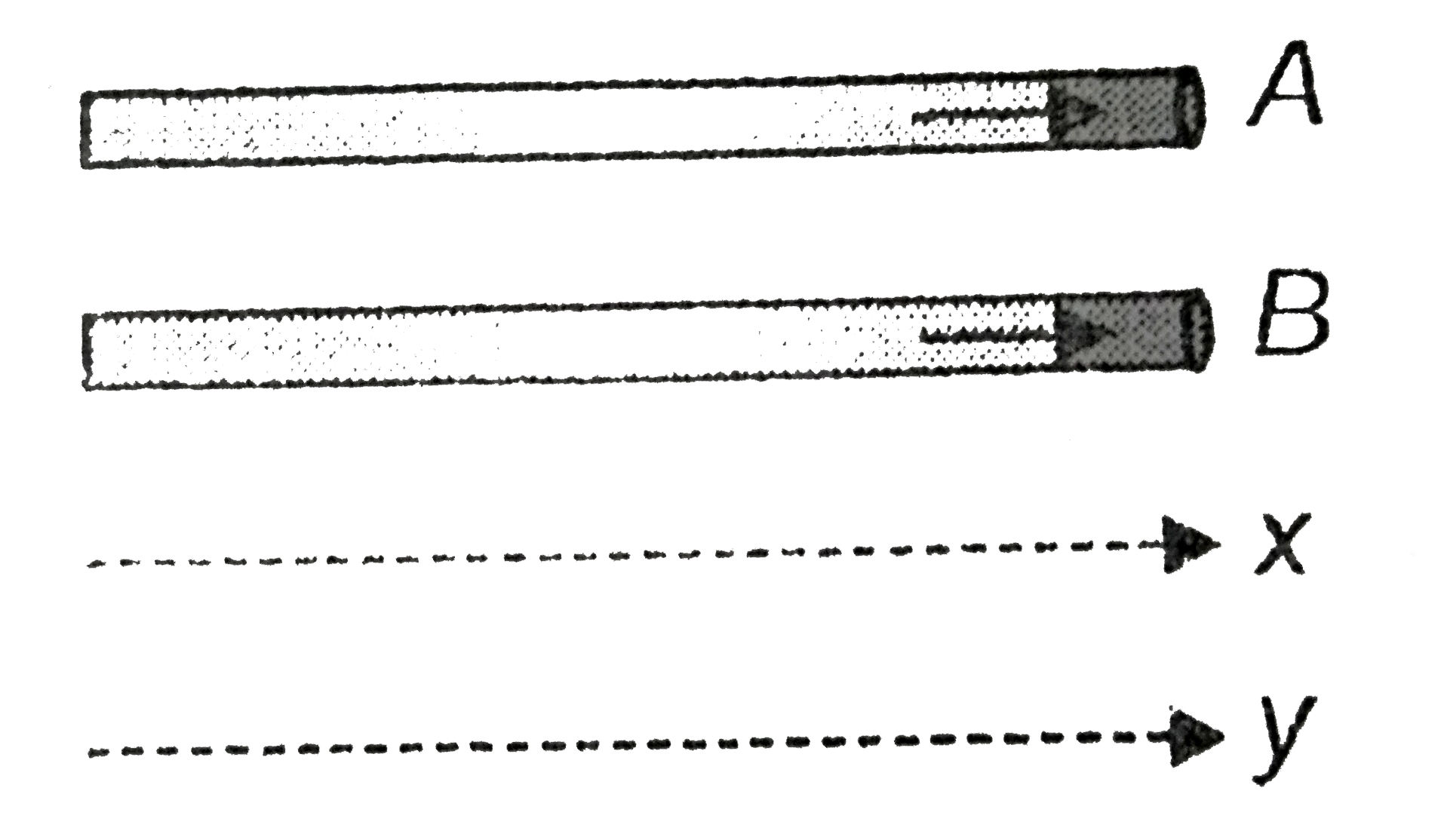Define SI unit of current in terms of the force between two parallel current carrying conductors.
(b) Two long straight parallel conductors carrying steady currents IaandIb along the same direction are separated by a distance d. How does one explain the force of attraction between them ? If a third conductor carrying a current Ic in the opposite direction is placed just in the middle of these conductors , find the resultant force acting on the third conductor.
Step-by-Step Solution
1. Understanding the Concept: The SI unit of electric current is defined based on the force between two parallel conductors carrying electric currents.
2. Definition: The SI unit of current, known as the ampere (A), is defined as the constant current that, when maintained in two straight parallel conductors of infinite length, with negligible circular cross-section, and placed 1 meter apart in vacuum, produces a force of 2×10−7 newton per meter of length between them.
3. Conclusion: Therefore, 1 ampere is the current that results in a force of 2×10−7 N/m between two parallel conductors separated by 1 meter.
---
(b) Explanation of Force of Attraction and Resultant Force on Third Conductor:
1. Current Direction: Consider two long straight parallel conductors, A and B, carrying steady currents IA and IB in the same direction. According to Ampère's law, parallel currents attract each other.
2. Force Calculation: The force per unit length FAB between the conductors is given by:
FAB=μ0IAIB2πd
where μ0 is the permeability of free space and d is the separation between the conductors.
3. Introducing the Third Conductor: Now, if a third conductor C carrying current IC in the opposite direction is placed in the middle of conductors A and B, we need to analyze the forces acting on conductor C.
4. Magnetic Field at Conductor C: The magnetic field BA at conductor C due to conductor A is:
BA=μ0IA2π(d2)=2μ0IAπd
The direction of this magnetic field is into the plane of the paper (using the right-hand rule).
5. Force on Conductor C due to A: The force FCA on conductor C due to conductor A is given by:
FCA=ICBA=IC(2μ0IAπd)
The direction of this force will be to the right (since IC is in the opposite direction).
6. Magnetic Field at Conductor C due to B: Similarly, the magnetic field BB at conductor C due to conductor B is:
BB=μ0IB2π(d2)=2μ0IBπd
The direction of this magnetic field is out of the plane of the paper.
7. Force on Conductor C due to B: The force FCB on conductor C due to conductor B is given by:
FCB=ICBB=IC(2μ0IBπd)
The direction of this force will be to the left.
8. Resultant Force on Conductor C: The net force Fnet acting on conductor C is the difference between the forces FCA and FCB:
Fnet=FCA−FCB=2μ0ICIAπd−2μ0ICIBπd
Simplifying gives:
Fnet=2μ0ICπd(IA−IB)
FAB=μ0IAIB2πd
where μ0 is the permeability of free space and d is the separation between the conductors.
BA=μ0IA2π(d2)=2μ0IAπd
The direction of this magnetic field is into the plane of the paper (using the right-hand rule).
FCA=ICBA=IC(2μ0IAπd)
The direction of this force will be to the right (since IC is in the opposite direction).
BB=μ0IB2π(d2)=2μ0IBπd
The direction of this magnetic field is out of the plane of the paper.
FCB=ICBB=IC(2μ0IBπd)
The direction of this force will be to the left.
Fnet=FCA−FCB=2μ0ICIAπd−2μ0ICIBπd
Simplifying gives:
Fnet=2μ0ICπd(IA−IB)
Topper's Solved these Questions
- XII BOARDSBook:XII BOARDS PREVIOUS YEARChapter:XII BOARDSExercise:SECTION - D
Explore 6 Videos
- XII BOARDSBook:XII BOARDS PREVIOUS YEARChapter:XII BOARDSExercise:SECTION - E
Explore 6 Videos
- XII BOARDSBook:XII BOARDS PREVIOUS YEARChapter:XII BOARDSExercise:[SET -III, OUTSIDE DELHI]
Explore 5 Videos
- SAMPLE PAPER 2019Book:XII BOARDS PREVIOUS YEARChapter:SAMPLE PAPER 2019Exercise:SECTION D
Explore 6 Videos
Similar Questions
Two long straight parallel conductors carrying currents I1andI2 along the same direction are separated by a distance 'd'. How does one explain the force of attraction between them?
If a third conductors carrying a current I3 in the opposite direction is placed just in the middle of these conductors , find the resultant force acting on the third conductor.
View SolutionDerive an expression for the force between two long parallel current carrying conductors. Use this expression to define SI unit of current.
View Solution
Knowledge Check
Two parallel wires carrying currents I1 and I2 in opposite directions and separated by a distance d experience a
Arepulsive force μ0I1I2/2πdBattractive force μ0I1I2/2πdCrepulsive force μ0I1I2/2πd2Dattractive force μ0I1I2/2πd2Two parallel wires carrying currents I1 and I2 in opposite directions and separated by a distance d experience a
Arepulsive force μ0I1I2/2πdBattractive force μ0I1I2/2πdCrepulsive force μ0I1I2/2πd2Dattractive force μ0I1I2/2πd2The force of attraction between two long parallel conductors 1 metre apart carrying unit ampere current in same direction is
A2×10−7 N/mB10−7 N/mC10−5 N/mD0.5×10−6 N/m
Find the force between two parallel conductors carrying currents (i) in the same direction (ii) in opposite directions and hence define one ampere.
View SolutionA and B are two conductors carrying a current i in the same direction x and y are two electron beams moving in the same direction. There will be

View SolutionThe two linear parallel conductors carrying currents in the opposite direction…………………each other.
View SolutionThe graph of force per unit legth between two long parallel current carrying conductors and the reciprocal of the distance between them is
View SolutionA and B are two conductors carrying a current I in the same direction, X and y are two electron beams moving in the same direction. Then there will be

View Solution
